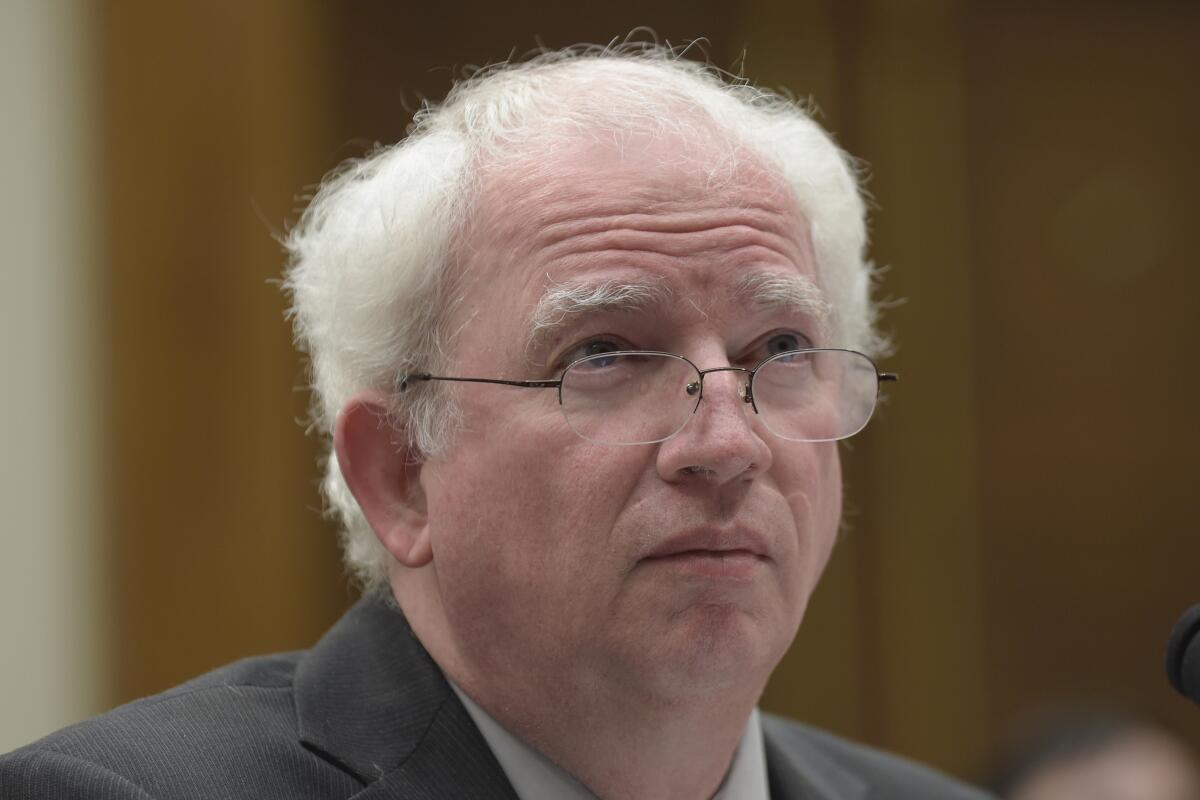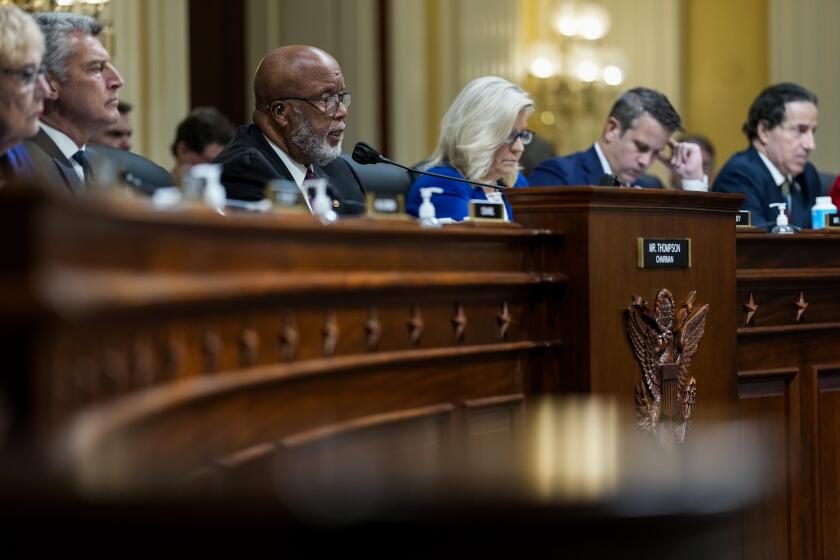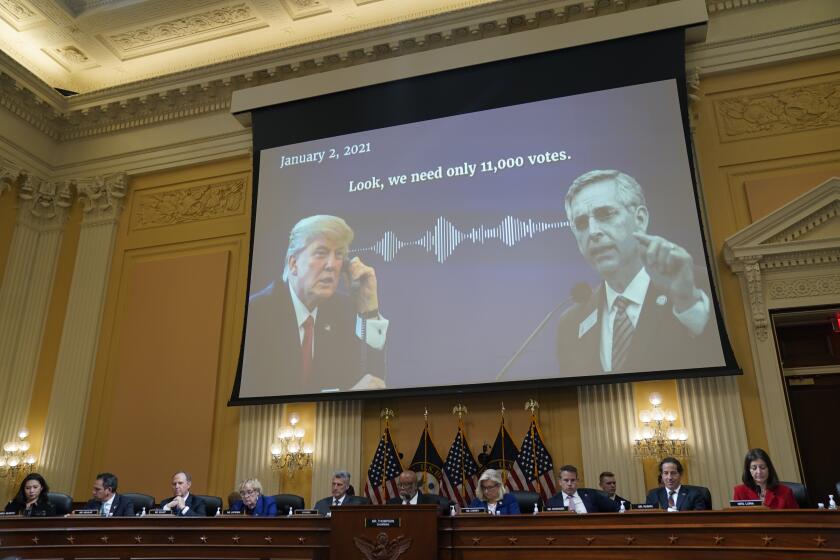Trump knew vote fraud claims in legal documents were false, judge says

WASHINGTON — Former President Trump signed legal documents challenging the results of the 2020 election that included voter fraud claims he knew to be false, a federal judge said in a ruling Wednesday.
U.S. District Judge David Carter in an 18-page opinion ordered the release of those emails between Trump and attorney John Eastman to the House committee investigating the Jan. 6, 2021, attack on the Capitol. He said those communications cannot be withheld because they include evidence of potential crimes.
“The emails show that President Trump knew that the specific numbers of voter fraud were wrong but continued to tout those numbers, both in court and to the public,” Carter wrote.
Though the judge’s conclusion has no practical bearing on a separate Justice Department investigation into efforts to overturn the election, any evidence that Trump signed documents he knew to be false could at minimum be a notable data point for criminal prosecutors trying to sort out culpability for far-ranging efforts to undo the results.
The judge specifically cited claims from Trump’s attorneys that Fulton County in Georgia had improperly counted more than 10,000 votes of dead people, felons and unregistered voters. Those false allegations were part of a filing that Trump’s legal team made in Georgia state court on Dec. 4, 2021.
Later that month, Eastman warned in a message that Trump had been made aware that “some of the allegations (and evidence proffered by the experts)” in that Georgia filing “has been inaccurate.”
Former President Trump is likely to fight the subpoena in court. With the committee set to disband at year’s end, it has little chance of questioning the ex-president.
Yet even after the message from Eastman, Trump and his team filed another legal complaint that had “the same inaccurate numbers,” the judge wrote. Trump under oath verified the complaint was true to the best of his knowledge.
Carter wrote that the emails are “sufficiently related to and in furtherance of a conspiracy to defraud the United States.”
Representatives for Trump and Eastman did not immediately respond to requests for comment. A spokesperson for the Jan. 6 committee declined to comment on the ongoing litigation.
The ruling is the latest development in a months-long legal battle between Eastman — a conservative lawyer and lead architect of Trump’s last-ditch efforts to stay in office — and congressional investigators.
Eastman has been trying to withhold documents from the committee on the basis of attorney-client privilege claims. The committee has argued that there is a legal exception allowing the disclosure of communications regarding ongoing or future crimes. And Carter has mostly agreed, ordering the release of hundreds of emails to the House committee since the spring.
In a stunning ruling in March, the judge had asserted that it is “more likely than not” that Trump committed crimes in his attempt to stop the certification of the 2020 election.
The House Select Committee detailed new information showing Trump’s plans to declare victory were ‘premeditated’ and he worked with others to deny election results.
Carter in his ruling Wednesday said the messages he has reviewed from Eastman and other attorneys show that the “primary goal” for some of their litigation was to stop the certification of President Biden’s election win.
The totality of the evidence makes clear that “Trump filed certain lawsuits not to obtain legal relief, but to disrupt or delay the January 6 congressional proceedings through the courts,” the judge wrote.
The emails from Eastman are part of the House committee’s investigation into a multi-part plan by Trump and his allies to overturn the 2020 election and the ensuing violence at the Capitol. The release of the emails could be critical for the committee as it enters the last few months of its investigation when lawmakers will have to decide whether to send a criminal referral against Trump and his allies to the Justice Department.
The judge ordered Eastman to give the documents to the committee by the afternoon of Oct. 28.
More to Read
Get the L.A. Times Politics newsletter
Deeply reported insights into legislation, politics and policy from Sacramento, Washington and beyond. In your inbox three times per week.
You may occasionally receive promotional content from the Los Angeles Times.












